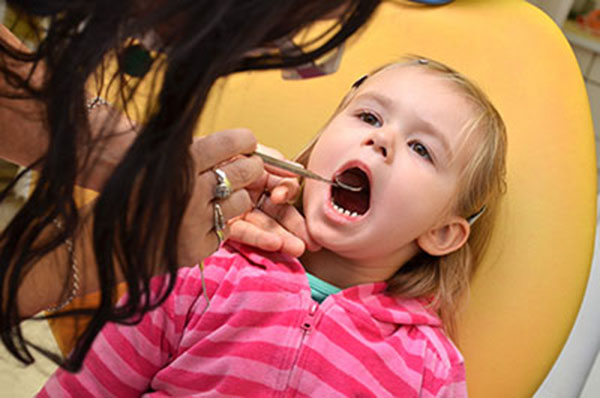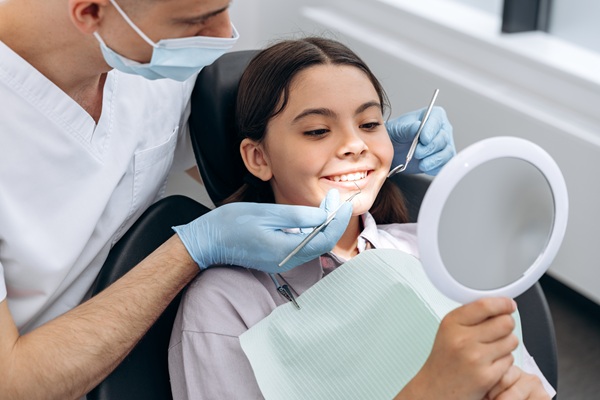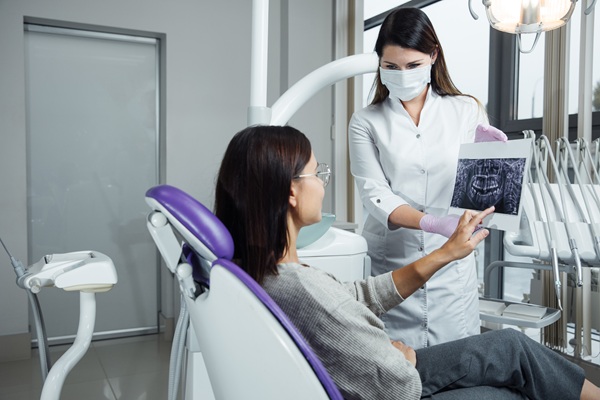5 Critical Parts of Your Dental Examination

Getting regular dental examinations is a large component of preventative dentistry. A dental exam serves as an opportunity for a dentist to clean your teeth and look for dental problems like gum disease and tooth decay. This is also a time to examine the face, mouth and neck for abnormalities like oral cancer.
During a dental examination, you can learn important factors that affect overall health like good oral hygiene and eating the right foods.
Important components of your dental examination
Each visit to your dentist will be different, but most dental examinations contain these five key parts.
1. Teeth cleaning
As was mentioned earlier, one of the treatments dentists perform during a routine examination is professional cleaning. This is done to remove tartar and plaque from the teeth. Tartar is calcified plaque that forms when plaque sits on teeth surfaces for prolonged periods. While plaque can be removed with brushing and flossing, tartar cannot. Over time, it will eventually give your teeth a yellow tint, and it also serves as a base for acid-producing bacteria.
During the cleaning, the dentist will use a metal tool to remove tartar from teeth surfaces. The dentist will floss the teeth and polish them after the cleaning. Regular teeth cleanings go a long way when it comes to keeping teeth looking their best and free of decay.
2. Visual inspection
A visual inspection is another important part of a dental examination. During the procedure, the dentist will carefully examine the teeth, looking for signs of any dental issues. It is often much easier to treat dental issues during their early stages so the importance of early detection cannot be overstated. The dentist's findings often determine what other treatments you may need during the visit.
3. Oral cancer screen
Oral cancer is a deadly disease that you can treat when detected during the early stages. Your dentist will likely be the first medical professional to see the sings of this cancer. The dentist will examine the neck, mouth and face to look for any irregularities.
4. Fluoride treatment
The dentist will assess your fluoride needs during the examination. If your teeth are susceptible to tooth decay, you may receive a fluoride treatment. Fluoride protects teeth from decay for up to six months. The dentist may also recommend other preventative treatments like a fluoride varnish or a dental sealant.
5. Bite inspection
The dentist will also look at your jaw and how your teeth align. X-rays may be done to get a better view of what is going on underneath the gums, or the dentist might make an impression of the teeth. The dentist will recommend appropriate solutions for any bite issues that are detected.
Regular dental examinations go a long way
Seeing your dentist every six months is one of the most effective ways to ensure your teeth remain healthy. When was your last dental examination? Call our office to learn more about our dental services.
Request an appointment here: https://clarisseatakhaniandds.com or call Clarisse Atakhanian DDS Inc. at (818) 483-9071 for an appointment in our Glendale office.
Check out what others are saying about our dental services on Yelp: Dental Checkup.
Recent Posts
The purpose of a dental check-up goes further than merely getting your teeth cleaned. It is also an opportunity for a dentist to evaluate the patient's mouth and come up with a treatment plan for any issues that may not be known by the patient. Regular visits to the dentist's clinic are an integral part…
At your Glendale dentist, we know that the secret to great teeth is consistency and regular visits to the dentist for an examination and cleaning. While we understand that visiting the dentist is probably not the first thing on your “fun things to schedule today” list, we also know there are intrinsic benefits to seeing…
Many people do not know that regular dental checkups are the most important preventive dentistry procedures against oral cancer. The dentist’s objective is to prevent and diagnose any issue as early as possible, when treatment is easier. Preventive dentistry is all about keeping the oral cavity healthy for a long time. Oral cancer screening is…
Preventive dentistry involves using the right products. This includes selecting the right toothpaste. There is a type of toothpaste for every person. If you want to enhance your preventive dentistry brushing strategy, here are some tips on choosing the right toothpaste.The attending dentist will be the judge of the most suitable toothpaste. The dentist knows…


